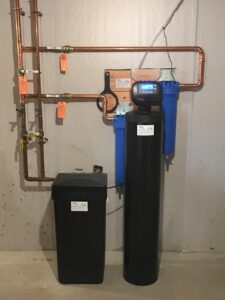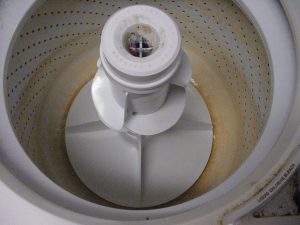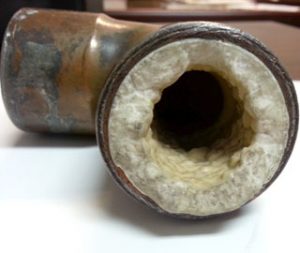WATER SOFTENER CONSIDERATIONS
A water softener is effective in removing hard water minerals, dissolved iron & manganese in Woburn, Massachusetts. Although the EPA has set no limits on the allowable amount of hardness in water, these minerals (magnesium & calcium) can have very negative impacts on your home’s water quality in many ways. The EPA maximum allowable levels for iron as a secondary contaminant is .3 parts per million. The EPA maximum allowable level for manganese as a secondary contaminants is .05 parts per million. These are very small amounts, but their affects can create quite an impact.

High Efficiency Water Softener
THE AFFECTS OF IRON, MANGANESE & HARD WATER
Hard water affects include corrosion and scaling inside pipes, major staining throughout the home’s showers, bathtubs, and sinks and destruction of hot water heaters way ahead of their useful life (scale build-up inside hot water heaters can insulate the temperature sensor inside the tank causing them to work much harder to bring the temperature up to the set level). Iron and manganese in water can create rusty or black/brown staining and corrosion in the home as well. For more on hard water, see https://hardwater.edu.

Dissolved Iron Staining
WHAT WILL A WATER SOFTENER REMOVE?
A water softener is effective in removing dissolved forms of iron & manganese and hard water minerals. To remove particulate iron or manganese, a cartridge filter with proper micron rating will be effective. Depending on the specific situation, this could require a series of filters with different size micron ratings to handle heavier levels in the water. Selecting the appropriate micron rating and style of filter can be determined by a water treatment professional based on water test results and other symptoms. For more information on Iron and Manganese in water, see articles in Water Technology Magazine at the following link: http://publications.




